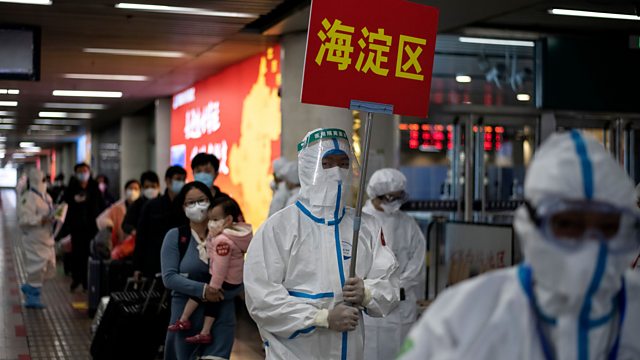Reasons: The pandemic that changed the world
Why did world leaders fail to work together to prevent the spread of Covid-19? Ian Goldin, professor of globalisation and development at Oxford University, examines the impact.
Why did coronavirus strike so fast and so hard? There was plenty of warning that a pandemic was inevitable, but when a new virus emerged in a wet market in the Chinese city of Wuhan, the world proved powerless to prevent it spreading. The finger has been pointed in various directions: a failure by the Chinese authorities to communicate, a sluggish response from the World Health Organisation, an ignorance of history, and what Ian Goldin, professor of globalisation and development at Oxford University, has termed the βButterfly Defectβ of globalisation. In this episode, Professor Goldin explores what he sees as the complacency of governments and a declining commitment to multilateralism as reasons for the new pandemic and its unprecedented economic consequences. He hears from, among others, IMF managing director Kristalina Georgieva; the man who identified the Ebola virus, Peter Piot; and the historian Margaret MacMillan.
Producer: Tim Mansel
Last on
More episodes
Previous
You are at the first episode
Broadcasts
- Wed 8 Jul 2020 01:32GMTΒιΆΉΤΌΕΔ World Service
- Wed 8 Jul 2020 08:06GMTΒιΆΉΤΌΕΔ World Service
- Wed 8 Jul 2020 12:32GMTΒιΆΉΤΌΕΔ World Service East and Southern Africa & West and Central Africa only
- Wed 8 Jul 2020 14:06GMTΒιΆΉΤΌΕΔ World Service except East and Southern Africa & West and Central Africa
- Wed 8 Jul 2020 19:06GMTΒιΆΉΤΌΕΔ World Service except East and Southern Africa & West and Central Africa
- Wed 8 Jul 2020 19:32GMTΒιΆΉΤΌΕΔ World Service East and Southern Africa & West and Central Africa only
- Sat 11 Jul 2020 16:32GMTΒιΆΉΤΌΕΔ World Service News Internet
- Sun 12 Jul 2020 07:06GMTΒιΆΉΤΌΕΔ World Service
Podcast
-
![]()
The Compass
With ideas too big for a single episode, The Compass presents mini-series about society



